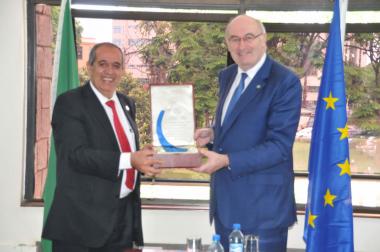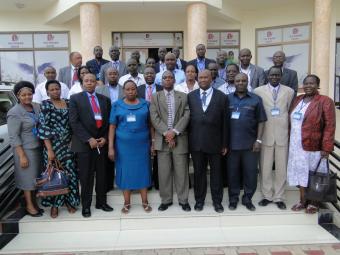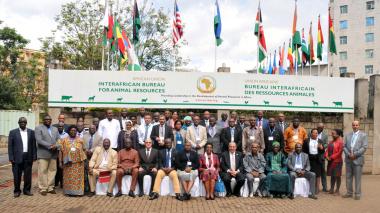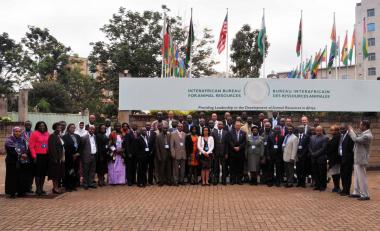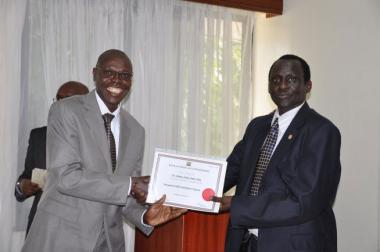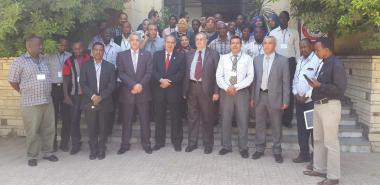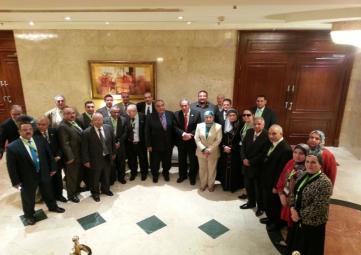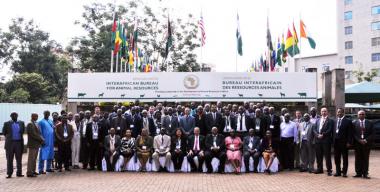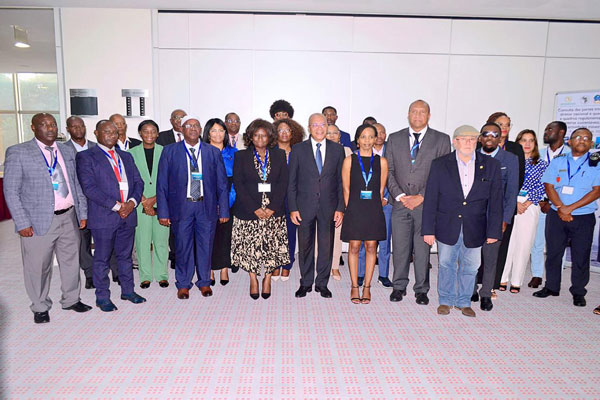
Luanda, Angola - May 9th to 11th, 2024
Africa's vast coastline stretching over 30,000 kilometers and its expansive maritime zones totaling approximately 13 million square kilometers present a wealth of opportunities for sustainable economic growth and development. However, the utilization of these resources comes with significant challenges, including threats to environmental sustainability and aquatic biodiversity. In response, the African Union (AU) has devised the Africa Blue Economy Strategy to guide member states in harnessing these resources effectively while ensuring long-term sustainability. Despite Angola's significant economic contributions from sectors like oil, gas, and tourism, these industries have posed substantial threats to environmental integrity, particularly along its 1,650-kilometer coastline and rich continental shelf. To address these challenges, a national stakeholder consultative meeting was organised by AU-IBAR in collaboration with the Ministry of Fisheries and Marine Resources and the National Directorate of Aquaculture, of Angola. The meeting took place from May 9th to 11th, 2024, in Luanda, Angola. Our primary objective was to create a comprehensive plan and enhance the regulations in Angola to promote environmental sustainability and protect aquatic biodiversity. This initiative sought to address the negative effects of marine and coastal tourism, as well as oil and gas exploration, on the aquatic ecosystems of the country.
The meeting was organised as a component of the project "Conserving Aquatic Biodiversity in African Blue Economy," which is being supported by the Swedish International Development Cooperation Agency (SIDA). The primary objective is to improve the policy environments, regulatory frameworks, and institutional capacities of AU Member States to ensure the sustainable utilisation and conservation of aquatic biodiversity and ecosystems.
The workshop had the goal of:
1. Increase public knowledge about important concerns and effects of coastal and marine tourism, as well as oil and gas exploration, on aquatic biodiversity and the environment.
2. Discover key concerns and strategies for promoting sustainable coastal marine tourism and oil and gas exploration.
3. Create a comprehensive plan to promote environmental sustainability and protect aquatic biodiversity on a national level.
4. Develop regulatory and policy guidelines to ensure sustainable mining, oil, and gas exploration in Angola.
Officials from a range of Angolan ministries, academic institutions, and international organisations gathered at the workshop. The attendees included representatives from Fisheries and Marine Resources, Urban Planning and Coastal Management, Agriculture and Forestry, Tourism, Defence, Environment, Mineral Resources, Oil and Gas, Maritime Affairs, the University of Agostino, FAO, and the Southern African Development Community.
The workshop utilised various methods to engage participants, including interactive activities, group work, and large group discussions. Attendees actively participated in discussions, presentations, and feedback sessions to meet the goals of the workshop. The participants of the workshop collaborated to create a comprehensive summary of the outcomes, which was then carefully reviewed and unanimously adopted.
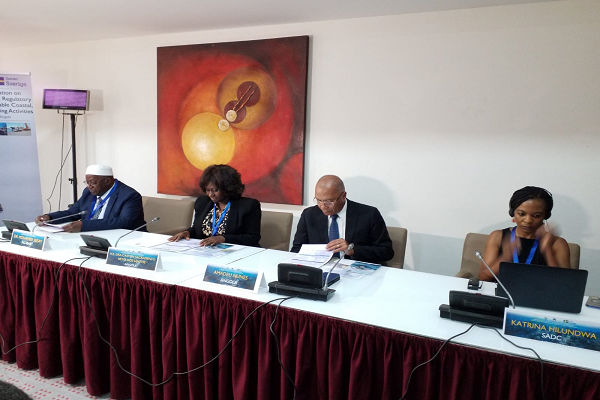
Dr. Mohammed Seisay, speaking on behalf of the Director of AU-IBAR, Dr. Huyam Salih, emphasised the critical importance of protecting aquatic resources to promote sustainable Blue Economy development in Africa. Dr. Seisay highlighted the importance of preserving these resources, stressing how it is not only a moral imperative but also a strategic necessity for unlocking Africa's economic potential.
Ms. Katrina Hilundwa, from the SADC Secretariat, emphasised the significance of regional cooperation in advancing the Blue Economy agenda. Her comments provided valuable insights into the importance of working together to address common obstacles and take advantage of shared opportunities in the field of aquatic resource management. Ms. Hilundwa highlighted the importance of AU-IBAR's contribution to the Blue Economy initiative, emphasising the significance of partnerships in promoting sustainable development goals.
Dr. Carmen Sacramento Neto dos Santos, Minister of Fisheries and Marine Resources formally inaugurated the meeting. Dr. Santos emphasised the crucial importance of aquatic ecosystems in guaranteeing food security and promoting economic prosperity. The attendees were implored to tackle the urgent challenges that Angola's marine and coastal environments are facing.
Several technical presentations discussed a range of subjects, including an overview of the project, the African Blue Economy Strategy, coastal and marine tourism, mining activities, and the current national regulatory frameworks. Participants actively engaged in discussions and shared their insights on the development of Angola's Blue Economy.
Participants gathered in thematic groups to discuss important matters, prioritise actions, assign responsibilities to institutions, and establish policy guidelines for coastal and marine tourism, oil and gas exploration, and mineral mining. Each group put forward suggestions specifically designed for their specific area of focus.
The workshop produced key concerns and steps for coastal and marine tourism, a comprehensive plan for Coastal Marine Tourism, and guidelines for enhancing regulatory frameworks. Experts strongly advised that national strategies be thoroughly reviewed, with a particular focus on integrating gender and youth perspectives. It was also recommended to allocate adequate resources and ensure that traditional knowledge is incorporated into the Master Plan.
Important next steps involve engaging with additional stakeholders, collaborating with the Ministry of Transport, seeking feedback on the draft communique, and confirming the outcomes of the workshop. The workshop emphasised the importance of inclusive planning and collaboration across different sectors to ensure the sustainable development of Angola's Blue Economy. The success of this national consultative meeting highlights Angola's commitment to promoting environmental sustainability and protecting aquatic biodiversity. This achievement sets an important example for future projects in the Blue Economy sector.

